
Cynthia is a feminine given name of Greek origin: Κυνθία, Kynthía, "from Mount Cynthus" on Delos island. The name has been in use in the Anglosphere since the 17th century. There are various spellings for this name, and it can be abbreviated to Cindy, Cyndi, Cyndy, Cinny, or occasionally to Thea, Tia, or Thia.

Opal is a primarily feminine given name derived from the name of the gemstone opal. The gemstone is the birthstone for October. Its name is derived from the Sanskrit upala, which means 'jewel'. It came into use along with other gemstone names during the late Victorian era. The iridescent, many-colored gem was called the “queen of gems” in Ancient Rome. The name has recently increased in usage, a trend that has been attributed to a renewed interest in “cottagecore names” with a vintage sensibility that are rooted in the natural world. Author Laura Wattenberg calls the sound of the name unique.

Goldie is a nickname or given name used in reference to an informal English diminutive word for gold or an English version of the Yiddish name Golda or Golde, also meaning gold. It was often used as a pet name for a girl with blonde hair. It is also used as a nickname for formal names such as Marigold. It has a “vintage vibe” for some parents who have considered it. Other commentators note that the name has risen in use for girls along with other names of a similar style that all exude cuteness and promote enjoyment, perhaps in reaction to serious times. The English expression good as gold is often used to describe people who act virtuously and, in the case of children, are well-behaved.
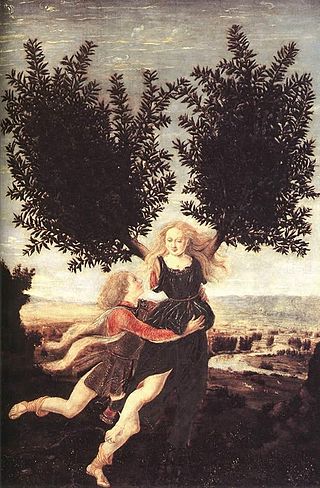
Daphne is a feminine given name of Greek origin meaning laurel. It originates from Greek mythology, where Daphne was a naiad, a variety of female nymph associated with fountains, wells, springs, streams, brooks and other bodies of freshwater. The name came into popular use in the Anglosphere in the late 1800s along with other flower, tree, and plant names that were in vogue at the time. In the United States, the name was in use for enslaved African-born women named by enslavers who used names from the Ancient Greek and Roman classics for the enslaved population in order to display their education to their contemporaries. United States census records from the 1800s show a majority of the women bearing the name in the pre-Civil War era there were Black. The name was also in rare use in the United Kingdom in the late 18th and early 19th centuries, where a working class mother and daughter in Scotland were both named Daphne. The name became fashionable for daughters born to aristocratic families in Britain in the late 1800s and early 1900s. The name increased in use in the Anglosphere after author Daphne du Maurier rose to prominence in the 1940s and 1950s. Usage also increased after the name was used for characters in novels or television productions such as the popular 1960s American television series Surfside 6 in which Diane McBain played socialite Daphne Dutton, who had her own yacht called the Daffy II. After the show first aired, the name Daphne tripled in use for newborn American girls between 1960 and 1962. In recent years, the name has increased in usage due to the aristocratic character Daphne Bridgerton on the 2020s Netflix streaming television series Bridgerton.

Ophelia is a feminine given name, probably derived from Ancient Greek ὠφέλεια.
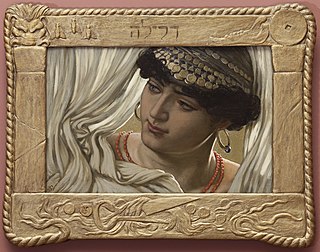
Delilah is a feminine given name of uncertain meaning. The best known Delilah is the Biblical character.
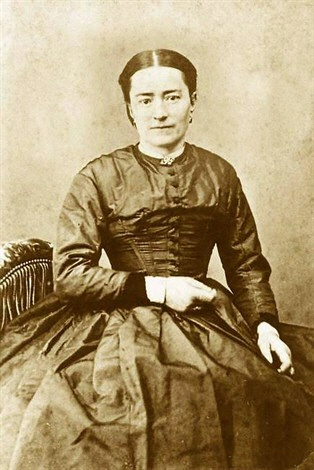
Zélie is a French short form of the name Azélie. Anglicized spellings and pronunciations of the name also in use include Zelie and Zellie. In some instances the name Zaylee and its spelling variants are intended as phonetic versions of Zélie.

Olive is a feminine given name of English origin meaning olive tree. The name is associated with peace because of the symbolism of the olive branch. An olive wreath has traditionally been worn by champions as a symbol of victory. It has also been seen as a symbol of fruitfulness.
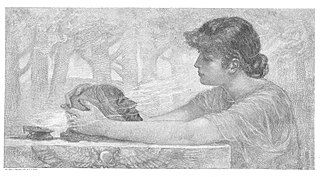
Sybil or Sibyl is a feminine given name of Greek origin given in reference to the sibyls, oracles of Ancient Greece. It has been in common use in Christian countries since the Middle Ages. Latinate forms of the name in use by 1381 included Sibilla and Sibilia. It was thought suitable as a name for girls by Christians, despite its pagan origins, because the sibyls had delivered messages from a deity and were thought to have been blessed by God with partial understanding of the coming of Jesus Christ. It became more common in the 1800s. Usage of the name recently increased due to a character on the popular TV series Downton Abbey. Sibylle, a French version of the name, is considered a bon chic bon genre name more likely to be given to girls from upper class French families.
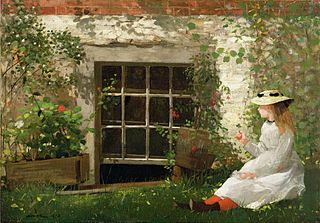
Clover is a modern given name derived from the common name for the plant, which was ultimately derived from the Old English word clāfre. The name has associations with Ireland and with good fortune due to traditional tales about the Irish shamrock or four-leaf clover. The name has recently increased in usage, a trend that has been attributed to a renewed interest in “cottagecore names” with a vintage sensibility that are rooted in the natural world. The name has ranked among the 1000 most used names for newborn girls in the United States since 2021. It also ranked among the 1,000 most popular names for newborn girls in Canada in 2021, the year it ranked in 854th position on the popularity chart with 32 uses. The name also ranked among the top 1,000 names for newborn girls in England and Wales in 2021, the year it ranked in 918th place on the popularity chart there.
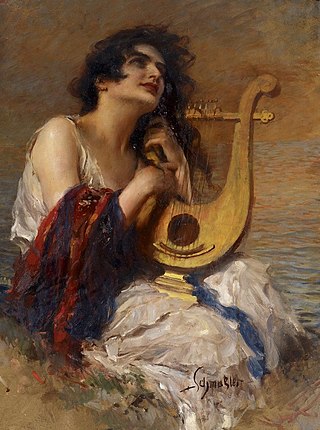
Lyra is a feminine given name of Greek and Latin origin meaning lyre. It is usually given in reference to the constellation and the Greek myth that inspired its naming. The name has associations with music and harmony and the night sky. The name has recently increased in usage due to a character in His Dark Materials, a book trilogy by Philip Pullman, and the television show and film adapted from the books.

Atticus is a masculine name of Greek origin meaning “from Attica.” The name is often used in reference to Atticus Finch, a heroic lawyer who represents an African American man accused of rape by a white woman in a racist Southern United States town in Harper Lee’s 1960 novel To Kill a Mockingbird. Usage of the name continued to increase even after the publication of the 2015 sequel Go Set a Watchman, a novel which presents a more conflicted version of Atticus Finch who also holds racist beliefs. The name has been steadily increasing in usage in the United States. It has been among the top 1,000 names for boys in the United States since 2004 and among the top 300 since 2020.
Elora is a feminine given name of uncertain origin. It has become better known as the name of a child character in the 1988 fantasy film Willow. It might be a variant of the names Eliora, a Hebrew name meaning “God is my light”, or Elnora, an American combination of the names Ella and Nora. It also has roots in other cultures and, in some instances, might have been inspired by the recreation area at Elora, Ontario that was ultimately named after a site in India.
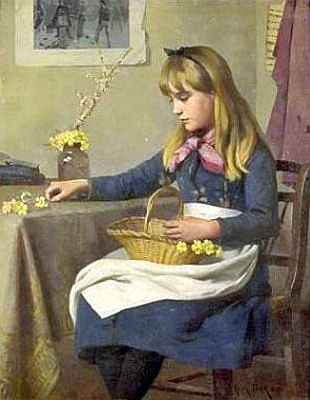
Primrose is an English feminine given name given in reference to the flower. The common name for the flower comes from the Latin phrase prima rosa, or first rose. It is also an English or Scottish surname. As a given name, it was occasionally used as a transferred use of the surname for both boys and girls. It came into vogue in the Victorian era and first part of the 20th century, especially in the United Kingdom, along with other plant and flower names for girls. More attention has been given to the name in the Anglosphere due to a character in The Hunger Games books by Suzanne Collins and the movies based on the books.

Lavender is a given name often given in reference to the flowering plant or to the light purple color. It is derived from the Old French word lavendre from the Latin lavendula. In some instances, it might also be a transferred use of the surname, which originated as an occupational name for a person who worked in a laundry or was a camp follower.
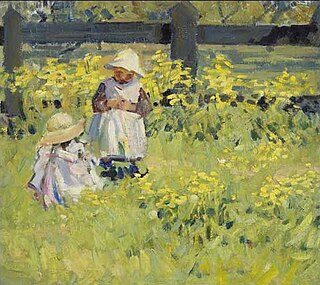
Posy or Posey or Posie is an English given name derived from the English term for a small flower bouquet. A posy is also a word for a single flower. It can also be derived from an English nickname, sometimes used independently, for a formal name such as Josephine. The name came into use along with other botanical names for girls in the 1800s. It has also been associated with poesy, referring to a collection of verses. A posie ring is a gold ring with a meaningful verse on its surface. They were exchanged by lovers as a symbol of commitment from the 1500s. Other spelling variants in use include Posee and Posi.
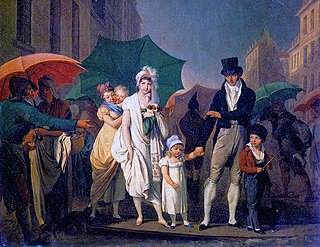
Dimity is a rare English feminine given name likely derived from the name for the fabric, which comes from the Greek prefix di, meaning two, and the Greek word mitos, meaning thread.

Maxine is an English feminine given name created as a feminine version of the name Max.

Marnie is a feminine given name sometimes said to be derived from the name Marina. Marna is a Swedish variant of Marina and also used as a Danish and Norwegian variant of Maren, which is derived from Maria or Marina. It has also been used as an English diminutive of names starting with Mar such as Margaret and Scottish variant Marjorie, and of Mary and its variants Marian and Marion. Marni can be either a spelling variant of Marnie or an independent name meaning rejoice in Hebrew. Marni is also in use as a Danish and Faroese unisex variant. Marnina is an extended version of the Hebrew name.
Fancy is a given name in occasional use in the Anglosphere. It is derived from the English vocabulary word fancy, a shortened version of the word fantasy. The word is also used in reference to an unusual, novel idea. The word is also used to describe elaborate ornamentation or an individual preference for a person or object. In some instances the name might be a diminutive of the name Frances. Fancy is also an English surname.



















